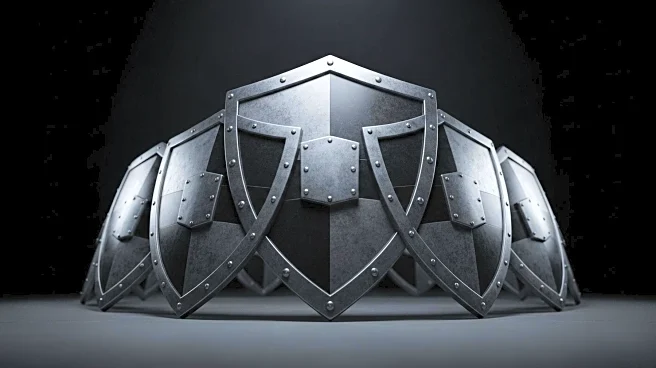What's Happening?
A recent EU summit in Copenhagen aimed to build consensus on European defense priorities but revealed significant discord among leaders. The meeting was intended to address the growing threat from Russia, including breaches of airspace by drones and fighter jets. However, leaders were divided on how to respond, with disagreements over funding Ukraine's resistance, advancing its EU membership, and implementing defense initiatives proposed by European Commission President Ursula von der Leyen. The summit highlighted internal power struggles and differing national priorities, with major EU powers resisting von der Leyen's proposals for a European drone wall and other defense projects.
Why It's Important?
The lack of consensus among EU leaders on defense strategy could embolden Russian President Vladimir Putin, who may perceive Europe as weak and divided. This disunity poses a risk to European security and undermines efforts to counter Russian aggression. The inability to agree on a coherent defense approach could impact the EU's ability to support Ukraine effectively and protect its own borders. The situation underscores the need for stronger collaboration and trust among EU member states to present a united front against external threats.
What's Next?
EU leaders must urgently resolve their differences and establish a unified defense strategy to address the Russian threat. Decisions on funding Ukraine and implementing defense initiatives need to be made soon to prevent further provocations from Russia. The summit's outcome may prompt further discussions on the role of NATO versus the EU in European defense, and how to balance national interests with collective security needs.
Beyond the Headlines
The internal power struggles within the EU reflect broader challenges in European integration, particularly in defense. The disputes over defense initiatives highlight the tension between national sovereignty and collective action, as well as the influence of industrial rivalries on defense policy. The situation also raises questions about the EU's ability to act independently of NATO and the United States in security matters.











